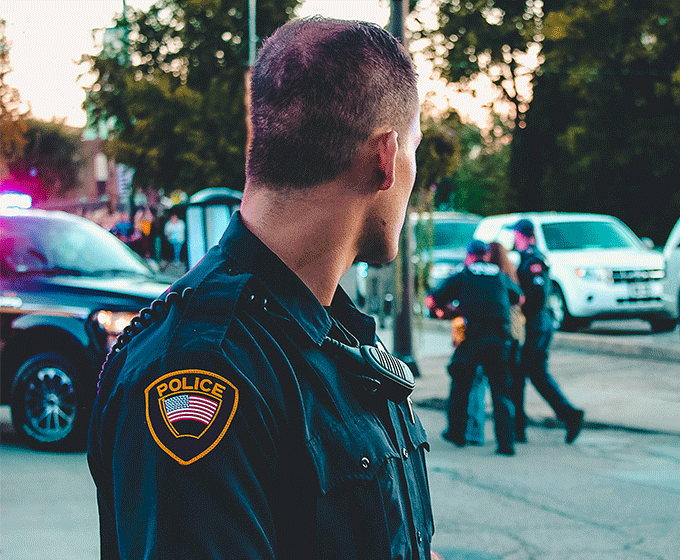Posted on November 4, 2021 by Amanda Cerreto
This article originally appeared in UTSA Today by Ingrid Wright.
NOVEMBER 5, 2021 — A recent study conducted at UTSA has resulted in the development of a first-of-its-kind inventory to measure the use of psychological skills among law enforcement personnel.
The research was led by William Land and Jianming Guan, associate professors in the UTSA Department of Kinesiology, in collaboration with Brandi Burque , staff psychologist in the Bexar County Sheriff's office.
According to a recent report by U.S. News & World Report , policing is ranked among the 25 most stressful jobs. Compared to workplace stress found in other occupations, police officers and first responders face traumatic and life-threatening situations at frequencies far greater than the normal population.
"This research has been invaluable to law enforcement performance and wellness training."
 The goal of the study was to gauge the extent to which officers utilize psychological skills and strategies to manage stress, which is critical to determining the success and impact of mental resiliency programs—training for helping police officers successfully cope and perform under highly adverse conditions.
The goal of the study was to gauge the extent to which officers utilize psychological skills and strategies to manage stress, which is critical to determining the success and impact of mental resiliency programs—training for helping police officers successfully cope and perform under highly adverse conditions.
The findings supported the underlying assumption that the use of mental skills can lead to improved psychological outcomes and greater job satisfaction.
"This research has been invaluable to law enforcement performance and wellness training," Burque said. “(With) the collaboration and the insights gained, we have been able to develop and modify training to enhance officer’s performance on the job and at home, thus increasing job and life satisfaction and overall resilience.”
Results also showed significant demographic differences in the use of psychological strategies—with younger officers, those with less time on the force and lower ranks more likely to use their mental skills. This finding reflects the impact that mental resiliency training newly introduced during police academy can have on an officer's psychological skill set.
Drawing from the core mental strategies taught as part of the innovative Performance, Recovery, and Optimization program (PRO), a resiliency curriculum Burque developed, the researchers assessed the use of seven central mental skills: attention management, winning mindset, combat breathing, muscle control, mental practice, physical recharge and self-talk.
“These strategies have long been used by elite athletes to handle the demands of high-pressure situations,” Land explained. “Importantly, the efficacy of these strategies are now being realized for use in other domains of human performance, such as with law enforcement and the military.”
In consultation with expert law enforcement personnel and PRO instructors, Land developed an initial 35-item inventory. The researchers administered the survey to 1,059 law enforcement officers from 2018 to 2019.
Land emphasized that the Psychological Skills Inventory for Law Enforcement (PSI-LE) questionnaire fosters the use of needs assessments by police departments to assess officers' strengths and weaknesses in their use of mental skills.
The questionnaire can help facilitate the design and implementation of psychological resiliency programs aimed at improving mental wellbeing and performance in officers. Furthermore, evidence of the benefits of this training can be crucial for preserving programmatic and budgetary support, establishing program acceptance, and generating new theoretical insight into officer wellbeing.
The study also revealed that individuals who utilize more PRO mental skills are more likely to display positive emotions and feelings of happiness and fewer signs of distress associated with anxiety and depression.
“Given the negative impact of trauma and critical incident stress on the mental and physical wellbeing of law enforcement officers, providing evidence-based support for mental resiliency programs can have important and meaningful benefits to officers' job performance and overall quality of life. Such outcomes are not only important for officers, but also the communities they serve,” Land concluded.

